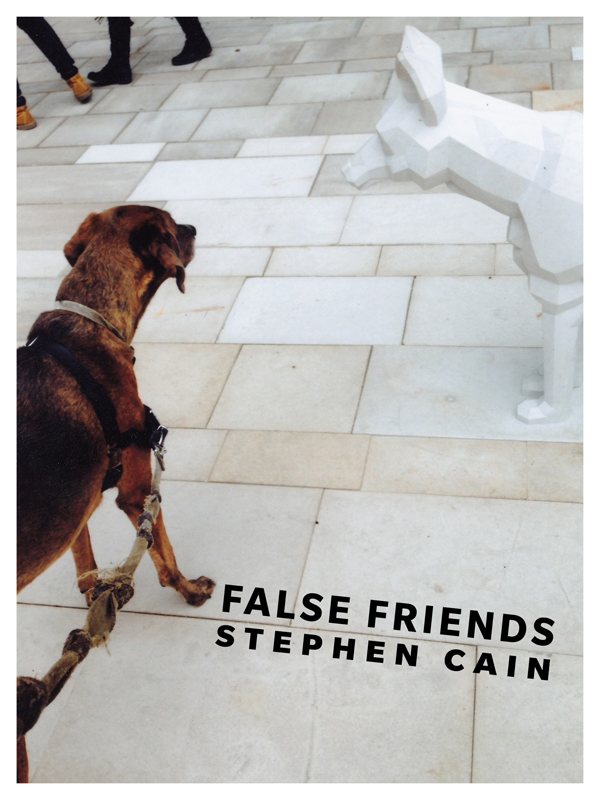
False Friends
Stephen Cain, 128 pgs, BookThug, bookthug.ca, $18
As I read, I am propelled forward through Cain’s poetry, engrossed by never-ending enjambment and captivated by his vast collection of “false friends”: words that look or sound similar but differ significantly in meaning. Comprised of seven distinct sections, False Friends provides an often damning, but nevertheless freeing meditation on modernity.
Cain’s tone is undaunted and unapologetic, weaving long lists of alliterative wordplay into his opening segment, simply titled “STANZAS.” It’s this chapter, in particular, that begs to be read aloud. With quandaries such as, “Moonshine mail, collective climax kinky query, dusky, / a pose arose, concomitant combing, I sit, epiphanies emerge, really rational,” the deconstruction of language segues into Cain’s own resistant translation of seemingly nonsensical non-sequiturs. The tentative meaning that surfaces during the collision course of text is transient and precious, and the author’s ability to tease out signification from these fragments is a gift for which I am grateful.
Most indicative of Cain’s unerringly experimental poetry style is “A COVER LIGHTS,” where he has splattered his carefully chosen words across the page into a poststructuralist’s dream: a choose-your-own-adventure, but framed as a game of words and their definitions. This expert performance of destabilization and reconfiguration showcases Cain’s utter control (or lack thereof) over language. He swaps signifiers — as with the irreverent “DOGMA” in which “dog” becomes “god,” — and cleverly toys with everyone’s favourite punk bands in the age of technology, “pixilated, here comes your RAM.” These poems ceaselessly question their prescribed connotations and they have fun doing it.
Much great poetry requires a negotiation of new worlds, an assessment of innovative structures, or a willingness to abandon all predeterminations. False Friends performs these criteria through total upheaval — a rewiring of readers’ brains — leaving in its wake both liberation and confusion. (Megan Hamilton)
